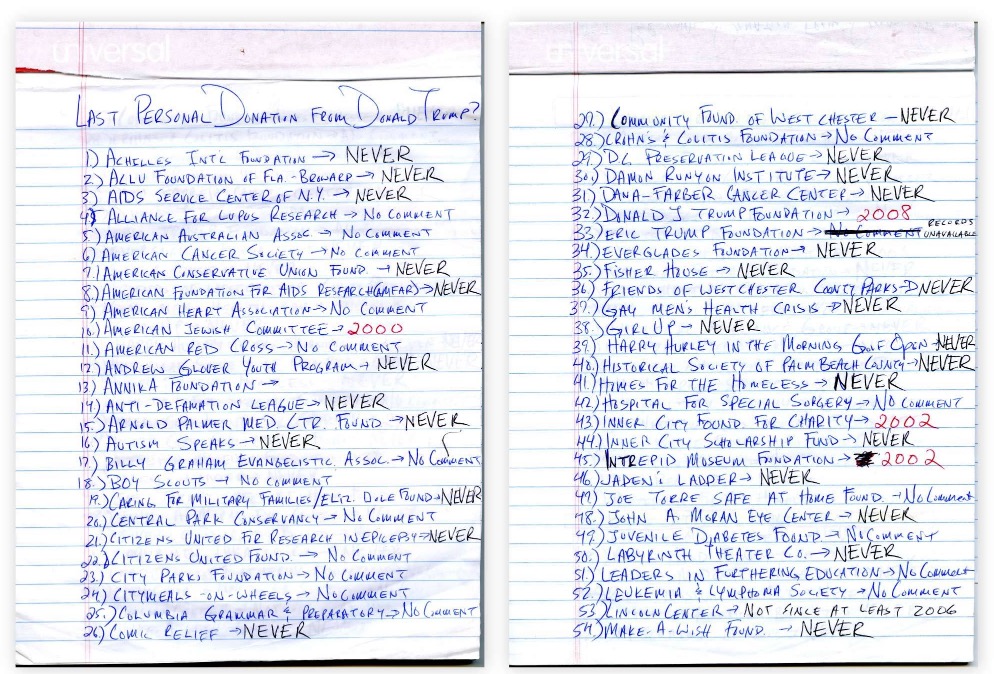
David @Fahrenthold on winning the Pulitzer: Along with staff, he thanks the readers and Twitter followers who helped make the story happen. pic.twitter.com/KPrEVs4Nqc
— Gene Park (@GenePark) April 10, 2017
The @Fahrenthold win is the first Pulitzer for campaign coverage since @davidmaraniss 24 yrs ago, says @stevenjay.
— Amy Argetsinger (@AmyArgetsinger) April 10, 2017
.@Fahrenthold .@Fahrenthold becomes the third consecutive WaPo Pulitzer for national reporting during the Bezos/Baron era
— Wesley Lowery (@WesleyLowery) April 10, 2017
Hey, Pulitzer folks. @Fahrenthold didn't "cast doubt" on Trump's assertions. He **proved** them to be utter lies. https://t.co/eQdHW1vXuX
— Dan Gillmor (@dangillmor) April 10, 2017
ProPublica was the only digital-only outlet this year to win (share) a Pulitzer: It helped investigate police abuse of eviction rules, in partnership with the New York Daily News. (Eviction was a winning topic this year: Mathew Desmond’s Evicted got best general nonfiction.) Coincidentally, Sarah Ryley, the Daily News reporter, started at the independent gun violence site The Trace on Monday as an investigative reporter. This was ProPublica’s fourth Pulitzer, and its investigation into algorithms was a finalist for Explanatory Reporting.
4 Pulitzer Prizes in 9 years. Not bad for an independent nonprofit that Spicer recently dismissed as a “left-wing blog.” https://t.co/B83YbmQDJU
— Bradd Jaffy (@BraddJaffy) April 10, 2017
The International Consortium of Investigative Journalists, with McClatchy and the Miami Herald, won the Explanatory Reporting award for its Panama Papers. We wrote here about how more than 400 reporters collaborated on the Panama Papers through a high-tech process. The group, at first, did not include The New York Times or The Washington Post, perhaps due to initial discomfort with the ICIJ’s “radical sharing” concept.Sarah Ryley joins @teamtrace the same day she was honored with the 2017 Pulitzer Prize for Public Service. https://t.co/YCRCYsFbZe
— The Trace (@teamtrace) April 10, 2017
BuzzFeed News was a finalist for the first time, for Chris Hamby’s Global Super Court reporting.
Huge congratulations to @ChrisDHamby, @BuzzFeedNews's first Pulitzer finalist, for his devastating investigation!!https://t.co/WHAwiFvNT4!
— Ariel Kaminer (@arielkaminer) April 10, 2017
So 3 Pulitzers for “does major FAKE NEWS!”, 1 for “so false and angry,” 1 for “left-wing blog,” and 1 finalist for “failing pile of garbage”
— Joshua Benton (@jbenton) April 10, 2017